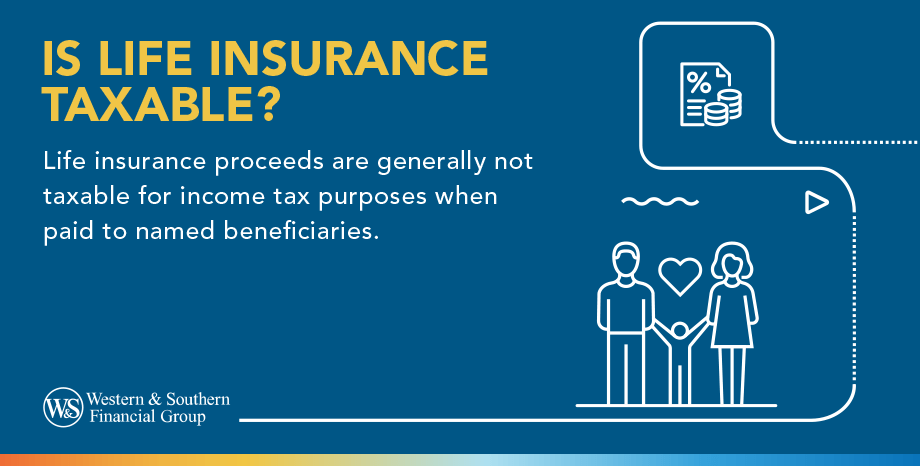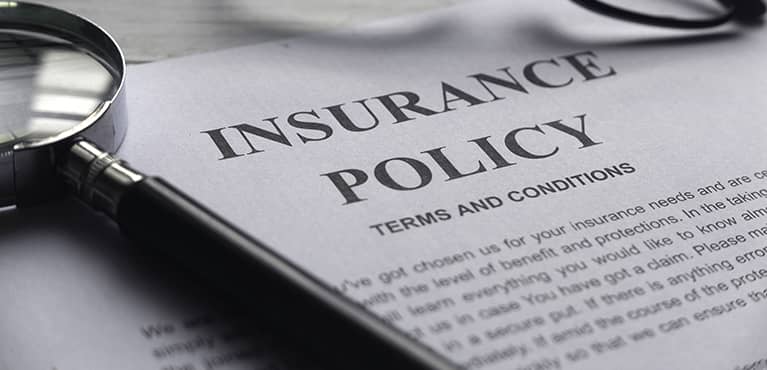Table of Contents
Table of Contents


Key Takeaways
- Life insurance death benefits are generally not subject to income tax, but large inheritances may be subject to federal estate taxes.
- Cash value in permanent life insurance policies is not taxed as long as it remains in the policy.
- Loans taken from the cash value are usually not taxed, but interest charges apply, and unpaid loans reduce the death benefit.
- Withdrawals from cash value up to the total premium paid are generally tax-free, while amounts exceeding the premiums may be taxable.
- Transferring cash value to another policy or converting it to an annuity can be done without incurring taxes.
One of the advantages of life insurance is that, in many situations, the proceeds are not taxable. This applies both when you are alive and managing your policy and when your beneficiaries receive the death benefit. But there are certain times when you may owe taxes. If you're wondering when life insurance is taxable and when isn't it, here are some of the most common scenarios.
When Is Life Insurance Exempt From Taxes?
When Your Beneficiaries Receive the Death Benefit (Most of the Time)
The IRS generally does not charge income tax on life insurance death benefits. In some situations, they may charge federal estate taxes, but only if you're passing on an especially large inheritance.
Estate Taxes
When Your Cash Value Increases
Some permanent life insurance policies build cash value, which is money you can use while you're still alive. As long as you leave the cash value in your policy, you will not owe income tax on the gains.2
When You Take a Loan From Your Cash Value
When your policy has cash value, you may be able to borrow money through a loan. You will generally not owe income tax for taking out your cash value through a loan, even if you take out your gains, as long as you keep your policy. It's up to you whether or not you want to pay back the loan later.
There are, however, some caveats to these loans. For one, the life insurance company will likely charge interest on the loan. You'll also want to make sure you can keep up with the premium payments because a loan will reduce the account value and the death benefit or may cause the policy to lapse. Also, if you pass away with an outstanding policy loan, that will typically be deducted from your death benefit before the rest goes to your beneficiaries.
Finally, if your policy is a modified endowment contract (MEC), then the loan proceeds may be taxable. The government sets a limit on how much you can pay into a policy with cash value relative to the death benefit, known as the "7-pay test," according to the IRS.3 If you overfund the cash value by paying too high a premium, the government will reclassify your life insurance policy as an MEC.
When You Withdraw Cash Value, but It's Less Than You Paid in Premiums
Another way to take out cash value is through a withdrawal. It's not a loan so you won't owe interest to the insurance company and you can't pay the money back into your policy. You can withdraw up to what you paid in total premiums without generally owing taxes, according to the IRS.4
When You Exchange Life Insurance for Another Policy or an Annuity
If you'd like to change life insurance policies, like switching from a whole life to a universal policy, you can typically transfer over the cash value to a new policy without owing taxes, according to the IRS.5 This is called a 1035 exchange. You can also typically convert your life insurance policy with cash value into an annuity without owing taxes.
When Is Life Insurance Taxed?
When Your Beneficiaries Owe Estate or Inheritance Taxes
As mentioned, the IRS generally doesn't charge income tax on a life insurance death benefit unless your estate is worth over $13.61 million. Some states also charge estate or inheritance taxes, and their taxable limits are lower. Beneficiaries will also owe the IRS taxes on any interest earned on the death benefit. Consider looking into the tax rules in your state to see when life insurance benefits are taxable.
When You Cancel or Lapse a Policy With Cash Value Worth More Than You Paid
When you cancel a life insurance policy with cash value, the insurer will send you a check for the remaining cash value. You'll receive whatever amount you paid in premiums back tax-free, but if your cash value is greater than that, the amount over your premiums will be taxable income.
If You Have an Outstanding Policy Loan When You Cancel or Lapse Your Policy
If you cancel or lapse your policy with an outstanding loan, it will then count as a withdrawal. Once again, you generally won't owe taxes on the amount up to your premium payments, but anything greater is taxable income.
When Your Policy Is an MEC
When you take money out of an MEC, either through a loan or withdrawal, you are obligated to take out your gains first, and this counts as taxable income.
In addition, if you are younger than 59 1/2, the government could charge an additional 10% early withdrawal penalty on the withdrawn MEC gains. As you sign up for life insurance, your agent could calculate what you can safely pay to avoid this scenario.
The Bottom Line
By understanding when life insurance is taxable and when it's not, you may be able to make better financial decisions for you and your beneficiaries. If you need more information, consider reaching out to a tax professional.
Optimize your life insurance to minimize tax burdens and maximize long-term financial health. Get a Free Life Insurance Quote
Footnotes & Sources
- Small Businesses & Self-Employed Estate Tax. https://www.irs.gov/businesses/small-businesses-self-employed/estate-tax.
- Cash accumulates over time. Withdrawals may be subject to charges, withdrawals of taxable amounts are subject to ordinary income tax, and, if taken before age 59½, may be subject to a 10% IRS penalty and interest is charged on loans, they may generate an income tax liability, reduce the Account Value and the Death Benefit, and may cause the policy to lapse.
- Administrative, Procedural, and Miscellaneous. https://www.irs.gov/pub/irs-drop/rp-01-42.pdf.
- Taxable and Nontaxable Income - 2023. https://www.irs.gov/pub/irs-pdf/p525.pdf.
- Section 1035--Certain Exchanges of Insurance Policies. https://www.irs.gov/pub/irs-drop/n-03-51.pdf.






































